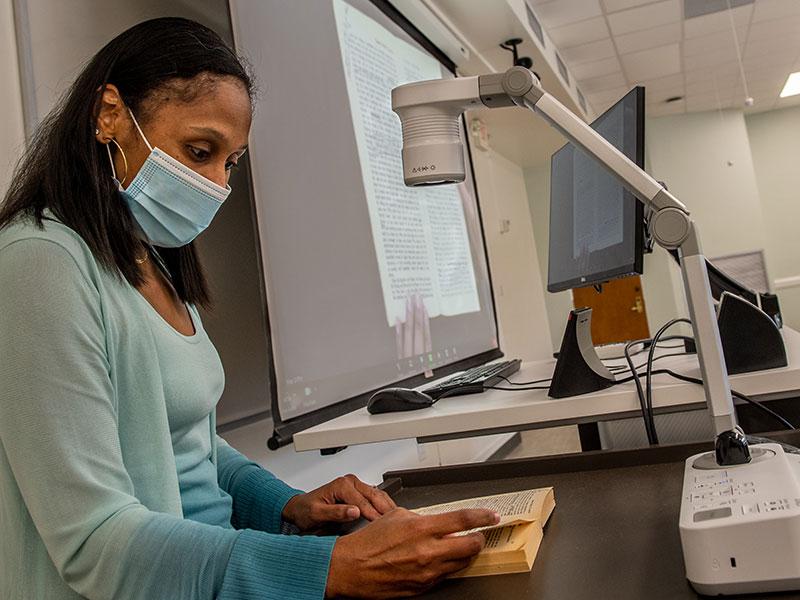Enhanced technology in classrooms promises lagniappe for teaching and learning
Excitement builds. Students and professors are preparing to start classes next week.
Much is different this year, of course, with COVID-19 precautions in place. Mask-wearing, social distancing and scrupulous hygiene are required.
What will stay the same is the innovative, collaborative and transformative coursework for which Tulane is known — with some major technology enhancements.
“Every classroom has gotten a major upgrade,” said Lee Skinner, dean of Newcomb-Tulane College, home of the undergraduate academic experience and the degree-granting body of Tulane University.
“We have a robust offering of courses designed to be taught fully online so that they deliver a great remote learning experience for students who can’t be here on campus,” said Skinner. “These classes are primarily for students who have been approved to study remotely, which includes our international students who are unable to return as well as students here in the U.S. who have reasons for not being able to come and be on campus, such as health concerns.”
The majority of students on campus, however, will attend in-person classes, where they’ll experience technology enhancements such as microphones to amplify faculty and student voices, recording capacity for lectures and class discussions, and Zoom meeting setups to connect students temporarily in quarantine in Paterson Residence Hall to their fellow students in the classroom, if necessary.
“Tulane has made a major investment in upgrading all of our classroom technology,” said Skinner. “Once people start using the technology, they are going to see how it’s going to enhance their teaching even in the future.”
Besides leading Newcomb-Tulane College, Skinner is a professor of Spanish. She’ll teach a course on 19th-century Spanish American literature to undergraduate and graduate students this fall. The class will be conducted entirely in Spanish.
Toni Weiss, executive director of the Center for Engaged Learning and Teaching (CELT), has been leading training for faculty in the new technology. “It enables a lot more active work in the classroom,” Weiss said.
For example, students can collaborate on a document together in real time. “It enables you to have a project that the whole class is working on at one time.”
Weiss, who is also the Lawrence M.v.D. Schloss Senior Professor of Practice in Economics, said that she suggests faculty look for the silver lining. “We’ll all be better educators after this because we’re all being much more thoughtful and intentional about the work that we’re doing.”
Weiss added that CELT in partnership with Information Technology’s Innovative Learning Center will continue to support faculty throughout the semester during Teach Anywhere office hours, Mondays–Wednesdays, noon–2 p.m. “Faculty can always pop in there with technology or pedagogical questions.”

